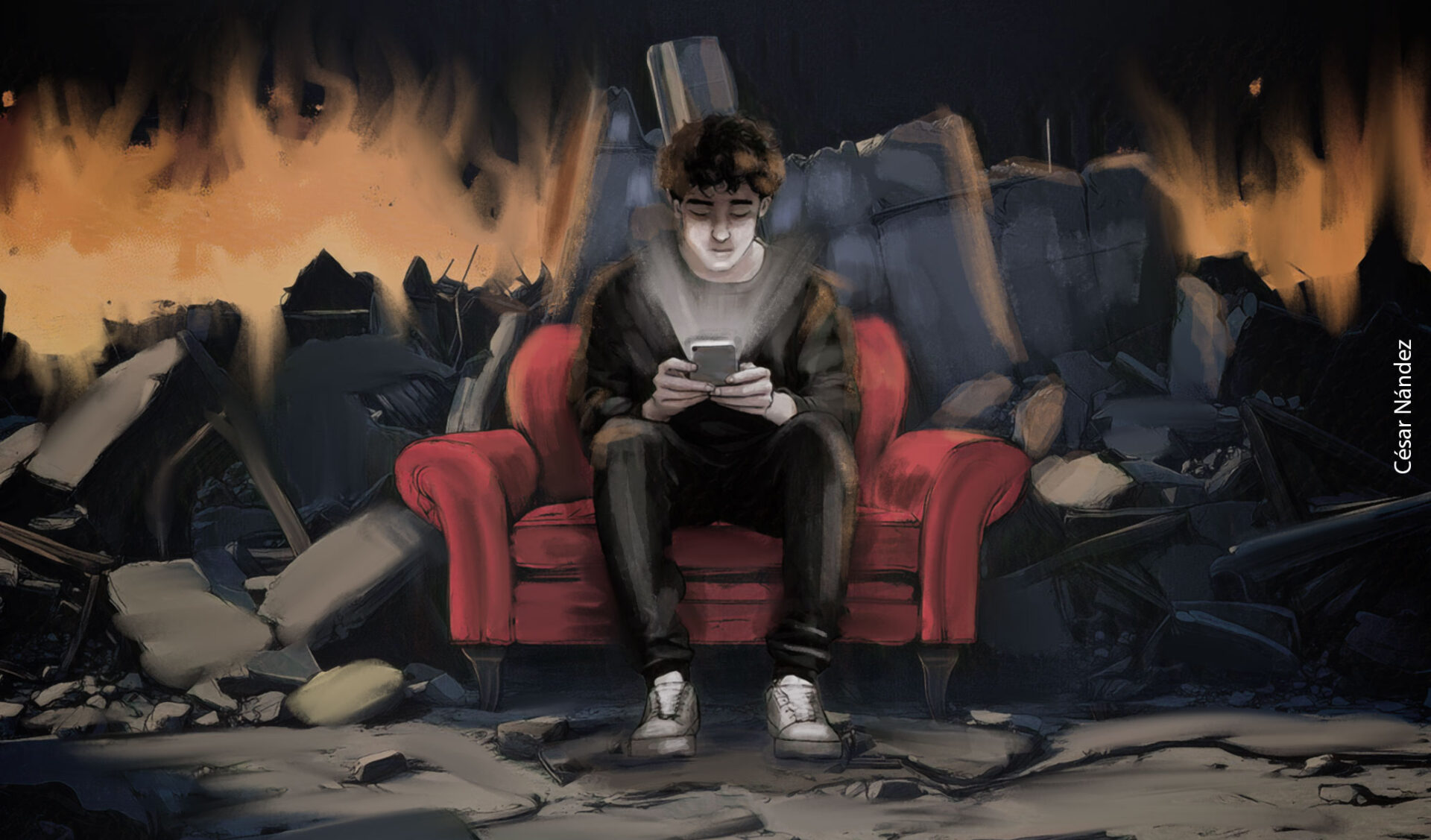Perhaps we are already at the end, or almost at the end. Our institutions, mired in mediocrity, seem confused or bewildered, as if those who run them do not know what they are for or what they are designed for. In the face of this, we have no opinion or nothing we dare to do: we review the disaster announced in the daily news and, after a helpless sigh, we touch the cell phone screen and start watching the antics of every tiktoker (young or old, novice or professional) for our laughter or commentary.
In this lethargy, we live the political polarization. We seem active and proactive because we walk around with our fists clenched and our tongues ready to insult, but it is a tension that produces nothing except noise and denigrating adjectives. “Only sound and fury that is nothing because it means nothing”, as the great Faulkner would repeat. It is a situation that is rooted in simple and hard hatred and not in respect and consideration for the other. We are radically powerless to imagine the future or to contribute to it because we are increasingly unable to sit down, calm down and think.
The promise of modernity, that technology could change our lives and make us happier and more prosperous, is in crisis. Today we have communication like never before. Internet social networks invite us to participate, seminars and courses on artificial intelligence are organized, but we do not know or do not realize that this has not improved our level of communication or, worse, our learning and reflection. On the contrary, our level of apathy, and isolation has only increased.
Newspapers close or cease printing their copies, and are increasingly replaced by the novelties of social networks that create an imaginary that is as apocalyptic as it is uncritical, in the face of which there is only room for thoughtlessness, inaction, or mutism. We have become fanatics of the brief, of the insubstantial. Today, reading a note or a report that takes us ten minutes seems an eternity, we prefer someone to tell us the same thing but in thirty seconds, or, better, in a brief phrase or slogan.
The philosopher Euridice Cabañes is right when she points out that in this era we no longer ask ourselves what to do or how to do it, but how long what we have will last. Since we cannot build the future, we are content to protect what we have. Without knowing it, we try to save what little we have. We inhabit the present not because we have little interest in the future, but because we are afraid of it.
We are as if we were on a train going to no destination. There is movement, there is action, but there is no future. The government administers the country but does not know where it is heading. Society consumes information but does not know what to do with it. Politicians are bent on disputes and fomenting division but do not project a common space. Society raises its voice and criticizes but refuses to associate. A series of protests arise, but the idea of change is absent.
It seems that we have lost the capacity to imagine alternatives. The great debates between left and right, between defenders of the state or the free market, have been diluted to the point of becoming insubstantial. They have been replaced by identity politics, which increases polarization as it fragments society, divides it into small but active groups that defend their rights based on a real or supposed identity based on class, ethnicity, gender, or territory. Naturally, democracy cannot withstand these micro-demands for long, since it is a space of consensus which, however fragile or circumstantial, is nonetheless important for its validity. Today, we are no longer seeking a common space—one that can encompass and interest everyone.
Something is wrong, something does not add up, something has only negative balances. Considering this, perhaps we need to look to the past, to find out again why a country was founded, for what purpose an institution was created or for what purpose something was built or created. It is necessary to go back to the founding fathers of the nation, to the creators of thought and institutions. We need to ask them what is the purpose of that which they so silently set out to build and which today we are so determined to weaken and destroy.













